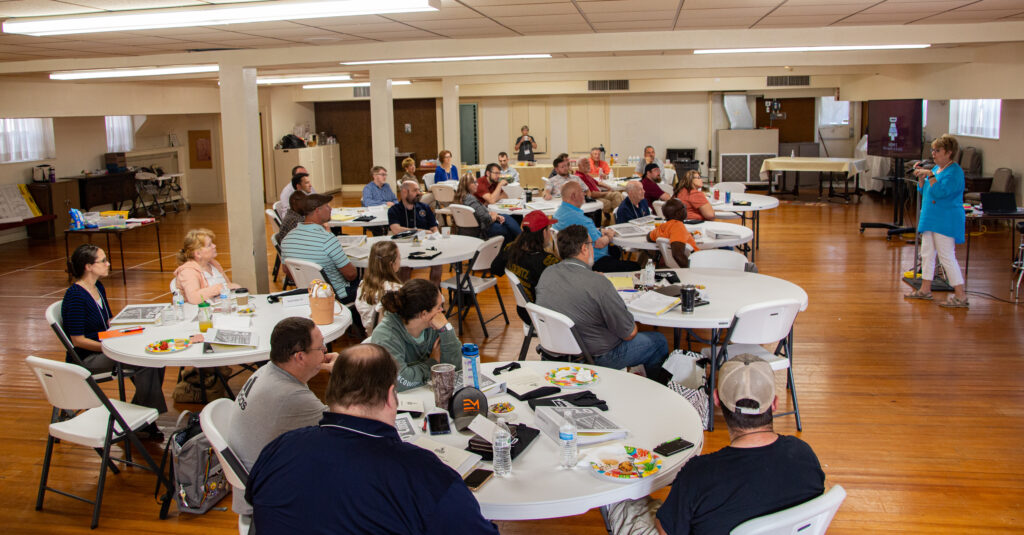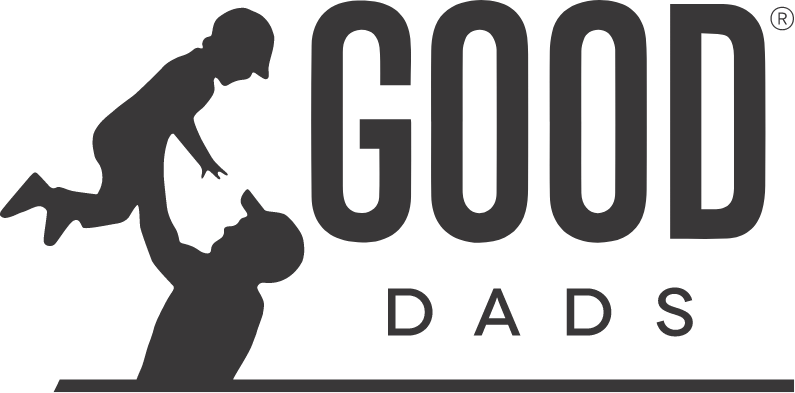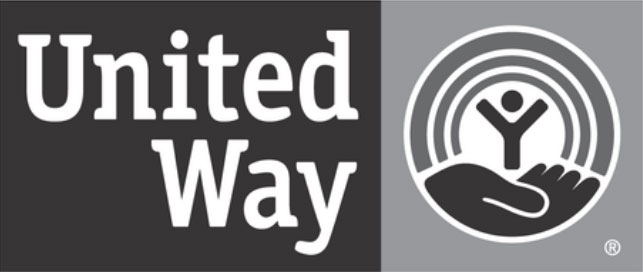Good Dads
2.0
Good Dads 2.0
How do you build a stable home for you and your family when you lack many of the tools necessary to construct a solid structure? What does it mean to build a safe home when you didn’t have one as a child? These are the questions Good Dads 2.0 answers in this curriculum.
What Is
Good Dads
2.0?
"If the only tool you have is a hammer,
then everything in the world looks like a nail."
This phrase means that we tend to use the tools we have on hand rather than figuring out what tool we should be using. But wise builders make sure they are employing the right tool for the job every time. Using the wrong tool can cause problems down the road for any kind of building project.
The same can be said of raising kids. Dads need a reliable set of parenting tools to build safe, stable homes with their families. Good Dads 2.0. This 16-part, evidence-based course is focused on equipping at-risk dads (as well as step-dads, grandfathers and father-figures) with what they need to overcome the barriers they may face in becoming responsible fathers. It covers a variety of topics through meaningful and thought-provoking questions, multimedia expert testimonials and educational activities.
Looking to learn more about Good Dads 2.0? Contact us!
Rhonda Andersen
Director of Training & Education
[email protected]
(417) 501-8867 Ext. 2
Course Objectives
Module 1 Becoming the General Contractor for your Family
- Describe the goals, format and content of the course.
- Develop a contract to guide the group’s behavior and expectations.
Module 2 Site and Building Plans: Your Family’s Foundation
- Identify personal values, recognize how values influence behavior and describe how one’s value may change.
- Explore the range of values within the group and acknowledge the importance of differing values in a diverse society.
- Explain the relationship between a father’s values and his ability to positively influence his children.
Module 3 Becoming a Great Builder
- Recognize and describe the impact of childhood role models.
- Reflect on the impact of father absence during childhood and its effects in adulthood.
- Examine one’s own relationship with one’s father.
- Distinguish between a “boy” and a “man.”
Module 4 Reputations and Stereotypes
- Explain how stereotypes influence how we think about ourselves and others.
- Identify one’s personal biases and assess their accuracy.
- Explore ways to overcome negative assessments from others.
Module 5 Sizing Up the Situation
- Explore challenges that may interfere with one’s ability to build a safe and stable family.
- Analyze scenarios to determine a father’s chances of parenting well.
- Consider one’s potential for being a good dad by evaluating strengths and weaknesses.
- Identify realistic ways to overcome challenges.
Module 6a Communicating Well with Your Crew
- Explain the components of healthy communication, including listening skills.
- Identify the danger signs of unhealthy communication.
- Demonstrate the ability to communicate safely about difficult topics.
Module 6b The Speaker Listener Technique
(Note: Good Dads has received special permission from PREP, Inc to use the Speaker Listener Technique in this curriculum.)
- Describe what healthy communication looks like.
- Practice the speaker-listener technique to aid in healthy communication.
- Understand why speaking for oneself is important.
Module 7 Handling Trouble on the Building Site
- Explore why conflict is a natural part of life.
- Identify likely sources of conflict between fathers and the mothers of their children.
- Explain one’s anger styles. Recognize cues one is becoming angry.
- Demonstrate healthy conflict resolution strategies.
Module 8 Managing Stress on the Building Site
- List common stressors for at-risk, single-parent fathers.
- Reflect on the impacts of childhood trauma and its effects in adulthood.
- Evaluate positive and negative coping mechanisms for stress.
- Examine the role of gender in communication, stress management and collaboration.
Module 9 Making the Best Decisions Possible with Help from Others
- Demonstrate appropriate ways to ask for help. Explore who is and isn’t a good person to ask for help.
- Evaluate challenging parenting scenarios.
- Practice predicting outcomes and consequences of one’s decisions.
Module 10 Tools to Support the Solo Contractor
- List common challenges facing single-parent fathers.
- Describe ways for fathers to respectfully interact with the mothers of their children.
- Explain constructive and age-appropriate ways to deal with a child’s behavior.
Module 11 Space for Today’s Family
- Describe how being a father today is different from the past.
- Understand the necessity of healthy boundaries for keeping children healthy and safe.
- Explain the factors related to maintaining a safe and stable home.
Module 12 Homes Where Children Grow Best
- Describe factors that help children thrive and grow.
- Evaluate the behaviors and values one wants to see in one’s children. Explore how to nurture these characteristics.
- Understand the stages of child development from birth through adolescence.
Module 13 Building Self-Confidence
- Describe the components of self-confidence.
- Explain the attitudes, skills and strategies for increasing a child’s confidence.
- Explore the relationship between chores and self-confidence. Identify age-appropriate chores for children.
- Demonstrate appropriate, well-timed affirmation.
Module 14 Planning for Family Fun
- Explain the importance of play in children’s development and wellbeing.
- Analyze the positives and negatives of competition in play.
- Understand the ways children play. Expand one’s repertoire of activities to help children learn.
Module 15 Understanding the Child Support System
- Describe child support laws, policies and procedures.
- Explain the potential benefits of declaring paternity for fathers and children.
- Understand one’s rights as a father.
Testimonials
“I look at my role as a father in a different perspective. I am more compassionate, understanding and patient. Trying to be more fatherly.”
“My children have noticed the change in my attitude. They know I am striving to be a better father and person.”
“It gave me tools to adequately build a safe, structured, loving and lasting home for my family.”
“Teaches you how to look at things differently, healthy ways to overcome things you didn’t know.”
“It is a great opportunity to show dads that they are not alone.”
“I learned so much I did not know.”
“Helped me realize how special your kids are.”
“I have taken more accountability of my past actions and has helped guide my future decisions in parenting.”
“Showed me a lot of different parenting skills that I can use with my boys and different ways of parenting.”
“Makes me want to have a closer, more understanding relationship with my children.”
Good Dads 2.0 Facilitator Training

Secure your spot now for the Good Dads 2.0 Training Camp: November 13–15 in Springfield, MO.
This is your premier opportunity to learn everything you need to know to effectively lead a Good Dads class in your community.
Good Dads 2.0 Facilitators learn:
- The most effective strategies to help fathers reconnect with their children
- Recruiting and engaging at-risk fathers
- Addressing common issues fathers face
Some of our best facilitators are:
- Mental health professionals
- Members of the faith community
- Recovery community leaders
- Retired professionals who want to give back
- Anyone passionate about empowering at-risk fathers to overcome the barriers they may face
Bundles & Purchasing Options
Customers looking to purchase Good Dads 2.0 must first complete a facilitator training. To maintain the highest possible delivery quality of the evidence-based program to participants, Good Dads does not allow purchases from folks who haven’t been trained.

Ultimate Contractor Bundle
$425
- 2 Good Dads 2.0 Facilitator Manual binders
- 1 flash drive containing all Contractor Clips
- 20 sets of Good Dads 2.0 Participant Guide booklets (16 modules each)

Handyman Bundle
$325
- 1 Good Dads 2.0 Facilitator Manual binder
- 1 flash drive containing all Contractor Clips
- 10 sets of Good Dads 2.0 Participant Guide booklets (16 modules each)

Backyard Builder Kit
$24.95
- 1 set of Good Dads 2.0 Participant Guide booklets (16 modules each)
Looking for
other ways
to bundle?
To order additional Participant Guides, flash drives or any other Good Dads 2.0 materials, please contact:
Rhonda Andersen
Good Dads Director of Training & Education
(417) 501-8867 Ext. 2
[email protected]


